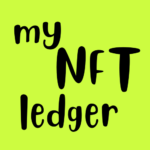Disclosure: The views and opinions expressed here belong solely to the author and do not represent the views and opinions of crypto.news’ editorial.
We have a people problem in web3. Unfortunately, despite the promise of decentralization and data ownership, platforms still aren’t talking to each other very well. As a result, ingrained issues like identity management, data sovereignty, and privacy continue to trouble our nascent sector.
A unified framework is, therefore, key to unlocking web3’s true potential—one that bridges the data divide and provides decentralized identity with strong privacy protections. This approach proposes a win-win for both sides of the stakeholder equation. Users benefit from cross-chain identity, data monetization, and a unified sense of self. Businesses, meanwhile, gain access to rich and verified user data while maintaining privacy and regulatory compliance. Better yet, this identity-first path to decentralization enables other new capabilities like on-chain reputation systems, chain-agnostic logins, and AI data utilization.
One thing’s becoming increasingly clear in the early days of web3—we must get identity right to get decentralized ecosystems right. Let’s explore how we can best connect people and platforms in this brave new world of the internet.
A win-win for users and businesses
Take a closer look and you’ll notice fragmented identities and disconnected data sovereignty hindering interoperability in both the internet new and old, leaving users with scattered information across the digital ether. This lack of integration limits trust-building and creates inefficiencies in industries—from advertising to AI—where cohesive data is essential.
These issues are all too familiar. Web2 social media giants and search conglomerates centralize identities but fail to connect them across platforms. The result? Siloed, static profiles owned by platforms and not people. Web3 promises a solution: decentralized, interoperable identities owned by individuals. However, putting this into practice is proving challenging.
While web3 improves upon its predecessor, true interoperability and seamless identity management remain elusive. Emerging protocols, however, are tackling this head-on. Projects like LayerZero, which aims for omnichain interoperability, and Gitcoin Passport, which focuses on open-source identity verification, are just two projects paving the way.
As a result, the identity and data layer is becoming a foundational piece of the web3 stack, and protocols and platforms can better offer digital identity management, on-chain reputation building, and data sovereignty.
As mentioned, this new reality benefits both users and businesses. Users can better connect with their online identities by owning, managing, and monetizing their personal data. At the same time, they can interact more safely and privately with dApps. CARV ID, backed by ERC-7231, exemplifies this by allowing web3 gamers to aggregate and manage on-chain wallets and off-chain accounts in one place.
For businesses, identity and data layers provide access to verified and (most importantly) consenting user data, which improves targeting, decision-making, and remarketing.
Better data, better results
The benefits don’t stop there. Unified identity supports a range of applications that improve the experience for individuals and the ecosystem. On-chain reputation systems, for example, allow users to build and maintain credibility across various web platforms, while chain-agnostic logins enable games and applications to provide data access regardless of where they live. Moreover, truly interoperable decentralized identities facilitate secure account recovery—a crucial advancement for blockchain-based wallets that addresses a long-standing pain point.
Identity and data solutions also unlock other new possibilities. Privacy-preserving advertising becomes feasible when users can opt-in and choose to monetize their information on their terms. And, as AI becomes more prevalent and data-hungry, decentralized identities enable model training that provides personalized experiences while still protecting privacy.
Ultimately, better data gives better results. This identity-first path to decentralization encourages consistency across platforms and creates a more intuitive and empowering online experience for all.
Identity and the user-owned internet
Today, there’s no difference between identity and digital identity. Working, socializing, gaming, and evermore facets of modern life increasingly happen online. Therefore, who we are and how we express ourselves should be interconnected across web3. Likewise, our online contributions—especially when used by companies for data ingestion and private profit—should be rewarded.
In its annual web3 survey, Consensus found that 79% of respondents want more control over their identity on the internet. At the same time, 38% of respondents globally believe they are adequately compensated for the value and creativity they add to the Internet.
These two ideas—identity control and fair compensation—are intrinsically linked. When people gain true ownership of their identity and can decide for themselves how to share or monetize their data, they’ll naturally be more fairly compensated for their digital contributions. This alignment is core to creating a user-owned internet that values individuals over corporations.
It’s simple: Future-forward protocols and platforms put people first. If we can connect people with platforms that prioritize privacy, scalability, and interoperability, we have a much better shot at shifting the digital status quo. Whether you’re a user, developer, or business leader, the time to engage with and shape this future is now. Let’s seize it and build an internet that is truly for people, by people.
By crypto.news
Source: crypto.news


